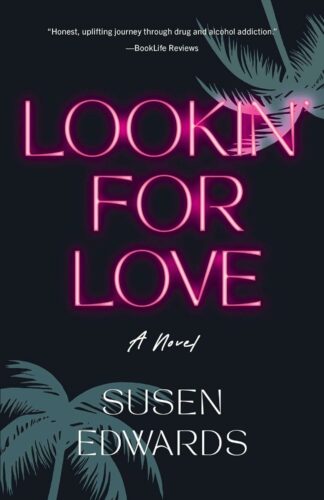 Cocaine and Champagne
Cocaine and Champagne
Author: Susen Edwards
It’s 1963 and Ava is sure that she can escape her unloving parents through marriage. Before the honeymoon is over, she regrets her choice. Her husband is a violent alcoholic. Two little boys later, nothing has changed. Her children are witnessing their mother being slowly destroyed, and with nowhere to go, she leaves her husband and starts a dissolute life of go-go dancing, hoping to make enough money to keep body and soul together. Starved for affection, overworked and undervalued, with no support network, Ava devolves into the seedy world of drugs and alcoholism, ultimately leading her into another bad marriage and later into a relationship with an international drug dealer. From dirty clubs to the high life in mansions in Kenya, Ava searches for meaning, for affection, and finally for a way to stop feeling. Her life goes from bad to glamorous to heartbreaking, flipping back and forth between men, between callings, and between life threatening situations. As Ava navigates this world and tries to find her place in it and win back the love of her estranged children, she finally seeks God and sobriety.
This novel has the clear, gripping ring of reading someone’s diary. Ava is up-front with us, speaking like she would with a friend, sharing her life in a fashion that is just as unvarnished as it is ultimately believable and tear-jerking. Something about the writing speaks of truth, of pure non-fiction. I kept flipping to the back, looking for the tell-tale “memoir” genre entry. Perhaps it’s Ava’s tone, perhaps it’s the ability of hindsight that colors the way she can now tell things, perhaps its how she shares her soul with us, accepting blame while also pointing out injustice and depicting the loneliness of her life. This doesn’t read like a novel, but like someone telling their story, warts and all. According to a little mark on the front cover, that I haven’t been able to find more about, Ava’s misadventures are based on a true story, so perhaps that is part of the magic.
The story itself is unexpected. We see Ava start, strait-laced, intelligent, and already defeated. Her young marriage has her cornered, her violent husband is shattering her self-esteem. She escapes with a clear head, for the good of her children, and it is not until way later that Ava develops a dependency on drugs and alcohol to deal with a job that leaves her numb. The insidiousness is the subtly of time, the way the debauchery of being used, even at work, has led her to self-medicate. We watch as her erstwhile husband gets his life together (allegedly) and uses his new marriage to steal the children’s affection, to play the old blame game, and to finally gain custody. It’s heartrending and the beginning of the end, the moment where Ava’s life takes a nosedive, and where self-medication is not just a work-night thing, but an around-the-clock way to live with pain and betrayal. What we see here is a very human heart and a woman unlikely to have ended up going down this path falling headlong into a new life that will be nearly impossible to escape.

Image by goska_malgoska from Pixabay
Ava’s journey eventually leads her to become involved with an international drug cartel, smuggling weed. It’s entirely unbelievable that the big cartel boss is actually the good, non-violent guy depicted, but we’re too busy empathizing with Ava as she finds that there is no solace in this life, despite the endless money, the cocaine and champagne, the servants, the fancy travel, and everything her heart could desire. Her relationship is falling apart, and soon the drug trade hits a dramatic snag that leaves her in jail and beginning to think about where everything fell apart.
Through the ups and downs, Lookin’ For Love shows just how harmful a life without love is and how vulnerable a person with no support network becomes. Ava is smart, but she is human. She needs kindness, she needs love: the love of her sons, of true friends, of a partner, and ultimately of herself. Ava falls in and out of addictions, and the spiral is compassionately depicted. The decisions stack up and Ava finds herself cornered. In the end, we’re all looking for love, and when that is not available, we’re all looking for comfort and merciful numbness.
The end is more cheerful, as one attempt finally takes. Ava finds AA and she finds God. She gets a support network. Yet, the damage is still very real. Her relationship with her sons remains extremely distanced. Ava is facing the health affects of a life on drugs. The moral is one of redemption yes, but also one of truth. It’s a warning and a love letter to the audience, and by the end, we love Ava. She has hidden nothing from us – she has explained but not excused bad decisions – and the result is her very reality. This woman feels real to us and her voice demands acknowledgement. She has made mistakes, but she has also been the victim of others. She is a true testament to the destruction of despair and the power of God to forgive and uplift. It’s a bittersweet story. Nothing is swept under the rug in the end, and the honesty is palpable and beautiful.
Ava’s story is raw, redemptive, and deeply human. Her honesty is both a reckoning and a gift—a reminder that healing doesn’t mean erasing the past but learning to live in truth with it. And while Ava’s voice is uniquely her own, the emotional terrain she walks is familiar to many—especially men who have long been taught to stay silent, to be strong at all costs, to “handle it.” But silence is its own kind of prison, and addiction, despair, and disconnection don’t discriminate by gender.
For men, finding that same level of transformation often requires a space that meets them where they are—in action, in nature, in movement. Check out the vista meth rehab program, which takes a different approach—blending clinical care with holistic therapy and outdoor adventure to break through emotional walls and reignite purpose. In these spaces, healing becomes more than just sobriety—it becomes reconnection. With each mountain climbed or trail crossed, men not only shed the weight of addiction but also rediscover brotherhood, courage, and a life worth fighting for.
Mental health struggles like despair and depression often cast long shadows over relationships, turning what should be sources of support into battlegrounds of misunderstanding and pain. When individuals wrestle with these challenges alone, the isolation only deepens. That’s why approaches such as couples counselling become vital—not just to mend fractured connections but to build bridges of empathy and communication. In therapy, partners learn to listen without judgment, express vulnerability, and stand together against the tides of mental illness.
It’s a traditional wisdom renewed: healing isn’t a solo journey but a shared path. When relationships become safe havens rather than pressure cookers, individuals feel empowered to face their inner demons. This shared resilience transforms despair into hope, and disconnection into meaningful connection. By honoring both individual struggles and relational dynamics, communities can nurture stronger families and, in turn, healthier societies—where no one has to suffer in silence or isolation.
– Frances Carden
Follow my reviews on Twitter at: https://twitter.com/xombie_mistress
Follow my reviews on Facebook at: https://www.facebook.com/FrancesReviews
- Book Vs Movie: The Shining - April 6, 2020
- Thankful For Great Cozy Mysteries - December 13, 2019
- Cozy Mysteries for a Perfect Fall - October 20, 2019

